Have you ever been awoken by a loud noise in the middle of the night? It’s not fun. It’s even less fun when that noise is coming from inside your own home. To avoid this, you might want to consider soundproofing your bedroom.
Soundproofing a bedroom is important because you need to sleep well. There are different ways you can soundproof a room. This article will look at the seven different methods that can be used for room soundproofing.
What Is Soundproofing?
Soundproofing is the process of blocking or reducing sound waves. It’s a common problem in homes, where people often want to keep their neighbors from hearing what they’re doing inside their house.
Soundproofing often involves installing materials such as carpet and sound-absorbing panels between rooms, which can help block sounds from getting through the walls. It can also involve adding insulation to your walls and windows so that the sound doesn’t travel through those surfaces either.
The best way to soundproof your home? It depends on what kind of noise you’re trying to block out! If there’s something like traffic noise outside your window (or even just a few houses down), you might want to consider adding double-paned windows with weather stripping around them so that less sound gets in through them. If it’s something inside your own home like a noisy bathroom fan that’s causing problems, then you’ll need something else like thicker curtains or heavy drapes over them to keep out the noise.
Soundproofing is not just limited to residential properties because businesses also need to consider the impact on their neighbors when they are operating heavy machinery or have loud equipment running non-stop throughout their working day.
Tips on How To Soundproof a Bedroom
Soundproofing is hard work! But there are some things you can do to make sure that your bedroom is as quiet as possible. Here are a few tips for making sure your bedroom stays silent:
1. Install Soundproof Curtains
If you want to soundproof your bedroom, one of the best places to start is with soundproof curtains. Soundproof curtains can be a great addition to any bedroom because they help control sounds from outside and even block light if desired. In addition, they are very versatile and can be used for various purposes.
Soundproofing curtains work by absorbing sound rather than blocking it out. When sound hits these curtains, it gets absorbed instead of bouncing back into the room or being reflected by them. This prevents noise from entering your room and bothering you while you sleep or relax in your bedroom during the day.
Soundproof curtains also help reduce outside noises such as traffic or construction. By blocking out these noises, you will be able to get better sleep at night and have more privacy during the day when you need time alone in your bedroom without worrying about people listening in on what goes on inside your home while they’re working nearby on projects like remodeling projects or building new homes next door or across the street from yours!
2. Hang Ceiling-Mounted Curtains
If you’re looking to soundproof a bedroom, one of the most effective things you can do is hang ceiling-mounted curtains.
Ceiling-mounted curtains are especially good at reducing noise because they are able to absorb and reflect sound waves. The curtains also help to block out light and keep the room dark. This can help you sleep better.
The best thing about this type of curtain is that it doesn’t require any additional tools or equipment to install them on your ceiling. You can just clip them into place using some small clips that come with the package when you buy it off TheHues!
3. Hang Door Curtains
If you have a bedroom that is next to a living room or other common area, one of the most effective ways to soundproof it is by hanging door curtains. By doing this, you will be able to block out any noise from the other room and make your bedroom feel much more private.
In addition to helping reduce noise in your bedroom, you can choose from several different types of door curtains that can add some style to your home. Some people choose to hang them on their living room doors or even their front doors to create an entirely new look for their homes.
This is also a great way to improve the overall look of your home while also creating an environment where it’s easier for you and your family members to sleep at night!
4. Rearranging The Room
Rearranging the room is a great way to soundproof a bedroom. This can be done by moving your bed, dresser, and other furniture items away from the walls. The idea behind this is that if you move them away from the walls, it will create more space between them and the wall. This will allow for better soundproofing of the room because there will be less vibrations in the walls. Another thing that you can do is remove windows if they are located on an outside wall. This will help keep noise out of your bedroom and reduce outside noise coming into your room as well.
Adding carpeting or rugs are another way to reduce noise levels in your home. Carpets and rugs have been known to absorb some of the sounds that come from outside or inside of your house which will make it easier for you to hear what is going on around you without having to turn up all of your electronics at full volume just so you can listen to them properly without being distracted by other noises coming from outside or inside your home.
5. Install Thicker Carpets
Carpet is an excellent choice for soundproofing because it’s dense, thick, and resilient to moisture. The thicker the carpet, the better it will be at absorbing sounds and vibrations from the floor.
To install thicker carpets in your bedroom, visit a local carpet store or online retailer to find options that will work best with your space. If you’re working with limited space, consider choosing a carpet that’s made with extra padding or cushioning.
This will help prevent outside noise from coming into the room and keep it from being heard inside the house. It will also help keep the noise inside of your home from interfering with other people in the neighborhood. This is especially useful if you live near a busy street or airport because it will help block out all of these sounds so that they don’t disturb others around you!
6. Seal The Gap Under The Door
Sealing the gap under the door is a great way to soundproof your bedroom.
This is a quick and easy way to make sure that no sound is getting through from outside of your room. It also reduces drafts, which can be a nice bonus.
You can find some great materials for sealing this gap at a home improvement store or hardware store. The key is to use something that will be flexible but also durable enough to resist wear and tear over time.
You can also buy some foam wedges that can be inserted into the gap between the door and floor. These are often just as effective—and much easier, because they don’t require any adhesives or other supplies. They’re also fairly inexpensive, so it’s worth considering if you don’t have time or energy for anything else!
Another way to make sure that this area doesn’t leak noise is by caulking around all of your windows. If you have any cracks or holes in your walls that would allow sound waves to travel through them, seal them up with caulk or spray foam insulation.
7. Consider Soundproof Wallpapers or Wall Panels
One of the most annoying things about having a noisy neighbor is that you can’t do anything about it. If they’re loud and you live in an apartment building, chances are your landlord won’t be willing to intervene.
If you want a cheap, easy-to-install solution that doesn’t require heavy lifting or construction, consider soundproof wallpapers or wall panels. You can find them at any home improvement store or online—they simply peel and stick right onto your walls!
Soundproof wallpapers are different from regular wallpaper because they have “sound absorption pads” embedded in them. These pads help absorb sound waves as they travel through the paper itself. This means that instead of bouncing off the walls and making noise in your bedroom, those sounds will be dampened by the pad and absorbed into it before reaching your ears. This can really help with soundproofing your bedroom!


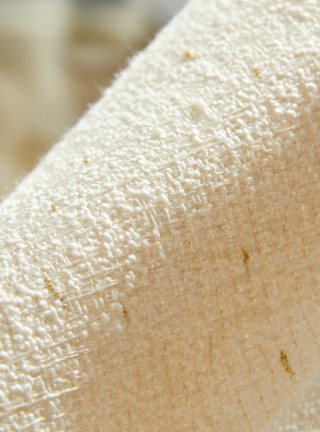
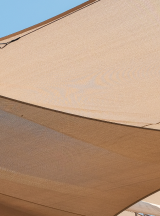
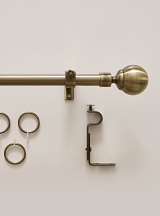
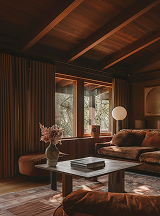
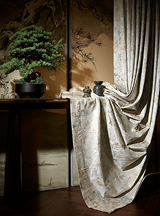







 Loyalty Plan
Loyalty Plan














